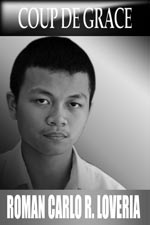 IT IS perhaps a safe assumption that anyone reading these words has never been without the concept of a book: an amalgam of tangible but easily perishable pages bathe in words. But charting its future has really less to do with the material from which it is made than how the book is consumed by its users and how information is being managed.
IT IS perhaps a safe assumption that anyone reading these words has never been without the concept of a book: an amalgam of tangible but easily perishable pages bathe in words. But charting its future has really less to do with the material from which it is made than how the book is consumed by its users and how information is being managed.
Writing, which made the book possible in the first place, was at one time considered a threat to human memory and thinking. As related in Plato’s Phaedrus, the idea of an external device which can take the place of human memory was an appalling prospect to the pharaoh Thamus. Yet eventually, according to novelist and semiotics professor Umberto Eco, in his essay “The Future of the Book,” writing’s natural consequence—the book—had not “narcotized” memory. The ability for remembrance, in the age of the book and the written word, was simply redirected to the memorization of books since they represented the coherent collection of a bulk of thoughts. Another arcane critique of the book was born out of its being filled with ideas: if the book had its own train of thought contained in its own lines, would that not cause a reader’s thinking capacity to atrophy? But as has been proven by many tomes in history, books get more wheels turning in people’s heads. Eco’s riposte consists simply of the idea that books are “machines that provoke further thoughts.”
Writing has had its turn, and now it is the old concept of the book “versus” the hypertext kingdom that has come. The quotation marks are of course hovering to signify the first point of the present milieu: there is no conflict between the book and the hypertext. But just what is the book seemingly up against? Perhaps the simplest analogue to the modern understanding of hypertexts is the dictionary. Consider having to look up the definition of the word pusillanimous. Not only do you find the definition of the word in question, but in most cases the dictionary points you to other words with their own definitions so as to provide a better understanding of pusillanimous, and the instance of hypertextuality may appear thus: syn see COWARDLY.
Albeit the dictionary does not look as different as any book the fundamental difference is in the linear and non-linear ways that content is absorbed. The regular book opens itself to a reader in the hopes that the person devouring the pages is already knowledgeable of the words it uses and that the learner will read the volume from cover to cover. To understand a traditional book, one needs to endure page by ordered page in order to gain a full appreciation of the ideas contained. The hypertextual book however provides an opportunity to peruse other relevant information to the understanding of the main text such that the reading activity digresses occasionally for the consumption of supplementary knowledge. For the Internet, hypertextuality usually exists in those ubiquitous hyperlinks, most often appearing as words dyed in blue. Much of the text in cyberspace finds itself related to almost everything else because the Internet does not presume an omniscient reader but instead takes hold of pseudo-omniscience so that the man in front of the screen gets exactly what he needs to be able to either understand or do something.
The significance may not be too obvious, but where once you needed to have two books at hand—one being the text you really need, and the other one to understand the first one with—a screen can stand in as a whole intersection point through which all pertinent data may be viewed on demand. And when readings take detours in the Net and then retrace their steps back to the singular text that started it all, it can be gleaned that not only one reference source was consulted and that information accessed included so much more than letters. Ultimately though, will hypertexts obliterate books?
Books, of the usual breed, will never be done away with for a number of reasons. First, the tangible book’s independence from electricity makes it more dependable for use. Second, books offer so much more certainty in being able to retain data than what digital storage devices can boast of today, and perhaps, even in the near future. Finally, books are necessary for those ideas which, when presented, require contemplation at a rather slow pace.
For the Philippines, the hypertextual issue should be taken advantage of so as to provide a more accessible means to information and up-to-date knowledge for a generation of youth that is still, for the most part, absorbed with the entertainment capacities of technology. While many academics fear the lack of policing in cyberspace, there are at the same time still to few scholars stepping up to the task of providing authoritative pieces for the country’s own share of the Net.
Obviously, the cyclical process of reading has come to fruition through this era’s current technologies. The only thing perhaps left for the many readers to do, both veterans and neophytes alike, is let the process come full circle by contributing to the great body of knowledge yet to be born out of the information din that is the Internet of today. Linear and non-linear texts will, and must, coalesce to form the true unification of human realizations and discoveries.
A hypertextual environment, grown out of linear texts as embodied by books, is the enunciation of a new epistemological ethos: that no one entity can ever declare supremacy over the production and dissemination of knowledge. The disorganized but expanding nature of Cyberspace is the articulation of man’s blind faith in the hope of one day grasping a sufficient comprehension of himself and the universe around him.













